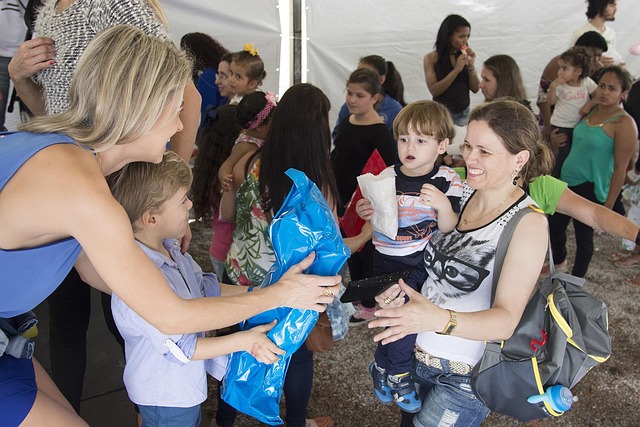
Building Economic Resilience: The Power of Local Community Solidarity
In times of uncertainty, when economic shifts seem to arrive with alarming frequency, the strength and resilience of communities often become the cornerstone of recovery and growth. The concept of local community solidarity transcends mere collaboration; it involves a deep-rooted commitment to supporting one another, especially in the face of adversity. This solidarity manifests in various ways, from grassroots initiatives to philanthropic foundations that become lifelines for those in need.
At the heart of any thriving community lies a robust network of support. Foundations play a crucial role in fostering local community solidarity by providing necessary resources and funding for local projects. These philanthropic efforts empower residents to take charge of their economic futures, creating jobs, promoting local artisans, and enhancing the overall quality of life. When residents rally together to support local businesses through initiatives such as ‘shop local’ campaigns, they not only stimulate the economy but also foster a sense of unity that is palpable.
Moreover, in times of economic distress, the principles of local community solidarity shine even brighter. Community members often come together to establish cooperative entities or mutual aid groups, acting as safety nets for one another. These groups might organize food drives, skill-sharing workshops, or financial literacy programs aimed at uplifting those impacted by economic downturns. Such initiatives illustrate the incredible power of community when individuals unite toward a collective goal: survival and prosperity.
The economy is inherently local; when a community thrives, so do its members. Local community solidarity thus emerges as an essential strategy for building economic resilience. It empowers individuals by providing them with tools to become self-sufficient while simultaneously creating a support network that reinforces cooperative ideals. For instance, when a local farm organizes a community-supported agriculture (CSA) program, it benefits not only the farmers but also fosters connections between consumers and producers, ensuring that money circulates within the community.
Philanthropic organizations have begun to recognize this shift and are increasingly focusing their efforts on community-centered projects. By facilitating partnerships between businesses, non-profits, and local government, these foundations help to establish a resilient economic ecosystem that is rich in resources and opportunities. The emphasis is placed on sustainable practices — encouraging members not just to consume but to engage actively in shaping their own economic landscapes.
As we navigate the complexities of the modern economy, it becomes clear that cultivating local community solidarity is not just beneficial; it is imperative. Communities that work collaboratively can harness their collective strength, turning challenges into opportunities for growth. This solidarity cultivates not only economic resilience but also a profound sense of belonging and purpose among residents. When individuals support one another and invest in their local environments, they lay the groundwork for a brighter future that transcends individual gain.
Ultimately, the narrative surrounding economic resilience is one of connection. Local community solidarity serves as a reminder that we are stronger together. It encourages us to think beyond ourselves, recognize our shared experiences, and foster partnerships that uplift the entire community. In doing so, we not only prepare ourselves for economic fluctuations but also weave a tapestry of solidarity that can withstand the test of time, ensuring that no one is left behind as we forge ahead.



